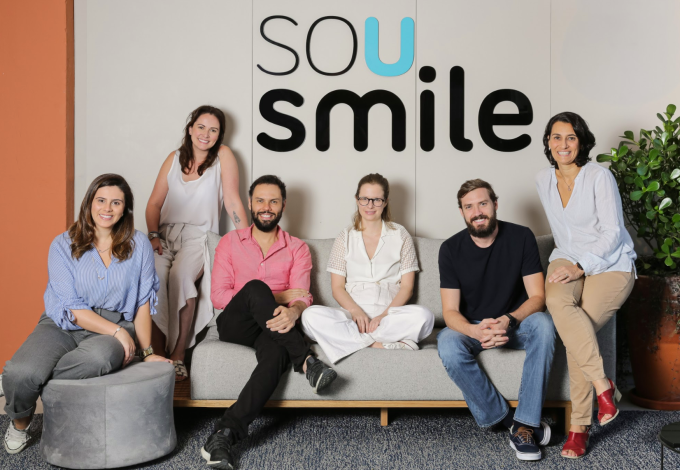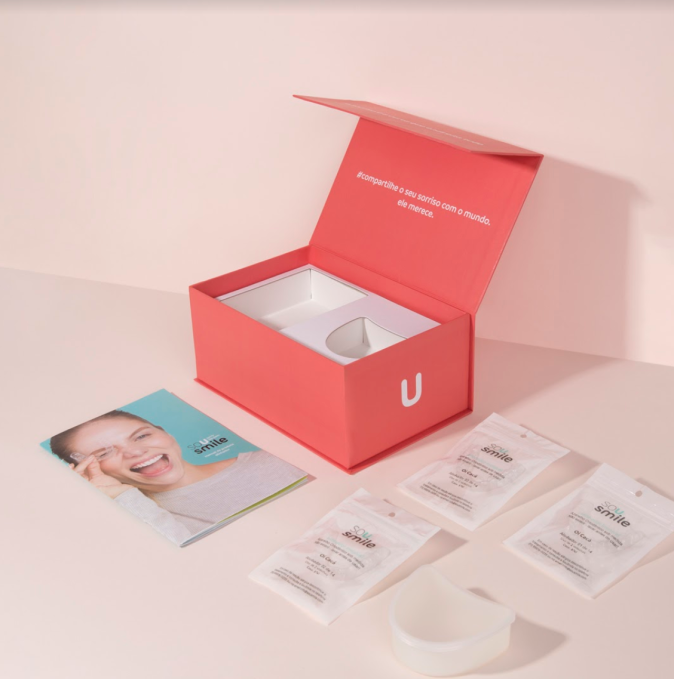SouSmile, a direct to customer dental company, has raised $10M in Series A funding from a number of private investors, including Global Founders Capital, Kaszek Ventures and Canary. The newly secured capital brings the São Paulo-based company’s total funding to $11.4M.
The two-year-old startup will be using the investment money to grow its invisible aligner brand, which utilizes 3D scanning technology to precisely tailor each aligner to the customer. The company currently operates in five retail stores across São Paulo and Rio.
Using 3D scanning to produce precise invisible aligners
SouSmile’s easy access process involves an evaluation by a licensed dentist using a panoramic X-ray, a 3D scan and finally, a clinical exam. Then, with the company’s approval, customers are cleared for treatment. The follow-up process requires customers to attend bi-monthly appointments to track the treatment’s progress and make adjustments to the aligners if need be. The whole process takes between three and nine months and costs approximately $1000, which is around 60% cheaper than what SouSmile’s rivals can offer in Brazil, according to co-founder Michael Ruah.

The 100-employee company, which includes around 50 dentists, has six co-founding members. The co-founders believe their revenue will take a hit in the short-term due to the global coronavirus pandemic as most of their customers are acquired through their physical retail stores. Despite this, the company is still confident it will prosper in the medium to long-term as it confirmed more than 10,000 bookings in 2019.
According to Ruah, Brazil has more than two million orthodontic cases every year, which can be attributed to its relatively high population of over 211 million. Still, the penetration of invisible aligners sits at less than 2% due to high prices and low incomes, compared to 40% penetration in the US. With much progress still to be made before wide-scale adoption, Ruah continues to preach that Brazil is an appropriate market for SouSmile’s dental products due to the country’s beauty and oral health culture.
He explains, “Brazilians brush their teeth three times a day. They’ll go out for lunch, they’ll come back to the office and brush their teeth. Everybody has their toothbrush and toothpaste with them all the time.”

While 3D scanning is being used to design aligners, there also companies using 3D printing in the fabrication process. One such company is Structo, a Singapore-based dental 3D printer OEM using its dental-specific DentaForm 3D printer to streamline the production of orthodontic clear aligners. Elsewhere, in the US, orthodontics company Candid Co is using the services of an affiliated lab to 3D print clear dental aligners for its customers.
The nominations for the 2020 3D Printing Industry Awards are now open. Who do you think should make the shortlists for this year’s show? Have your say now.
Subscribe to the 3D Printing Industry newsletter for the latest news in additive manufacturing. You can also stay connected by following us on Twitter and liking us on Facebook.
Looking for a career in additive manufacturing? Visit 3D Printing Jobs for a selection of roles in the industry.
Featured image shows SouSmile’s founders. Photo via SouSmile.


